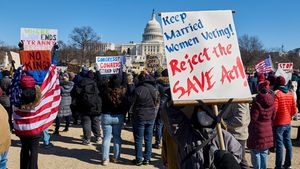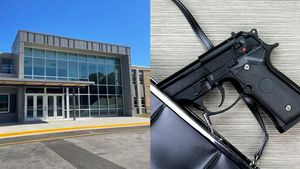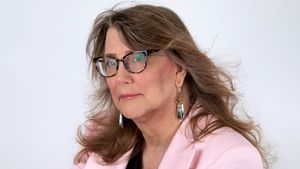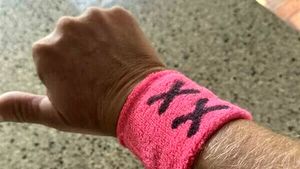The Switch is a video series sharing positive lifestyles and health routines to help you thrive while living with HIV. Listen to our guests living with HIV talk candidly about the positive switches they have made in their daily lives, including their approach to HIV treatment. Watch more episodes here.
When Tony Valenzuela, a proud Out100 honoree, learned about his HIV diagnosis in 1995 after having contracted it two years prior, he saw it as a death sentence.
“I was constantly around mostly gay men who were dying,” recollected the executive director of One Institute, the oldest continually operating queer organization in the country. “When I told my parents, I was essentially telling them I was going to die in their lifetime.”
Because of his HIV diagnosis, Valenzuela experienced ostracization from his own community for not following their so-called advice and mantras like “use a condom every time and safer sex is hotter sex.” At the time, he recalls, people constantly shamed him for his status and told him he was a bad role model for the community.
“The response from my community was one that surprised me,” Valenzula trembled as he thought back on the difficult time. “There was a lot of judgment. It was within a couple of years that the new meds really did instill a lot of hope in people.”
According to the U.S. Health Resources & Services Administration, the first HIV cocktail was introduced in 1995. The therapy is a combination of drugs that join forces to halt HIV from reproducing, decreasing viral load and increasing survival rates in patients. As an HIV advocate, Valenzuela stresses the importance for individuals living with the virus to understand that they will live a normal lifespan. He also highly suggests patients to seek out supportive doctors and be vigilant about their treatment.
“It’s no sweat in comparison to what our community had to go through before,” Valenzuela points out. “There's a rich history in our queer and trans communities.”
He credits his achievements in advocacy to the LGBTQ+ generations that came before him, as he witnessed the active involvements of the queer and trans communities in the AIDS pandemic.
“It probably took me ten years to realize I might have a regular life after all,” said Valenzula of the switch in his attitude towards his diagnosis. “Transitioning away from AIDS as a death sentence to HIV/AIDS as manageable — that’s what happened in the decade of the 90s.”
Since then, Valenzuela has advocated for HIV and the LGBTQ+ community for more than 30 years. Prior to joining One Institute in 2022, Valenzuela led many other queer organizations, including the Foundation for The AIDS Monument and Lambda Library — a premier queer literary non profit. He also founded the LGBTQ Writers in Schools, the first queer educational initiative in the K-12 New York City public school system.
“I was lucky in so many ways to have lived long enough to have the meds,” Valenzuela says as he holds back tears. “I don't take anything for granted and that always inspires me through difficult times, so I feel like I am going to make it and I have for a long time. It's hard not to think about all those people and put my own challenges into perspective and that really is a way that I am able to pick myself up and just keep moving forward.”


























































































